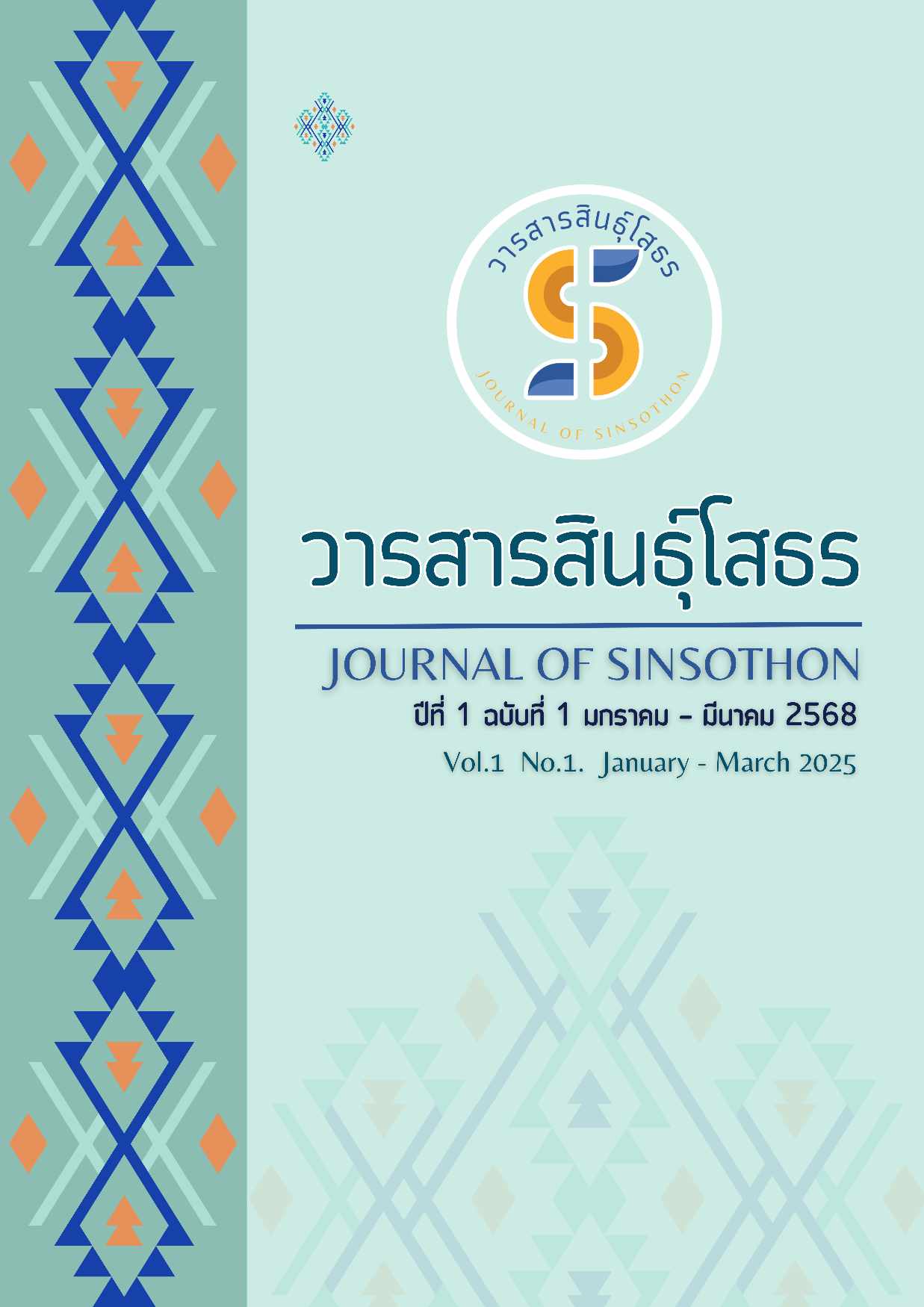The Role of Social Media in Public Administration During Natural Disasters in Thailand
Keywords:
Social media, Public administration, Natural disasters, Thai citizensAbstract
This academic article aims to study the role of social media in public administration during natural disasters in Thailand. The study found that in the digital era, social media plays a crucial role in public administration, especially during natural disasters when the public needs information quickly and accurately. The role of social media in communication between the government and the Thai people during natural disasters such as floods, landslides, and typhoons was examined. The study highlighted the use of various platforms such as Facebook, Twitter, and Line to disseminate information, issue alerts, and provide assistance. It also emphasized the public's involvement in communication and providing important information to the government. Social media plays a vital role in strengthening public trust in government disaster management, particularly in terms of prompt responses and effective information distribution. However, the management of accurate information and the prevention of the spread of rumors remain challenges that require further development.
References
กรกฎ จำเนียร. (2561). การรายงานข่าวของนักสื่อสารชุมชนในภาวะวิกฤตน้ำท่วม: กรณีศึกษา วิกฤตน้ำท่วมหนักที่สุดในรอบ 50 ปี ของ จ.นครศรีธรรมราช. ศรีปทุมปริทัศน์ ฉบับมนุษยศาสตร์และสังคมศาสตร์, 18(1), 117-226.
กฤษณะ แสงจันทร. (2565). แนวทางการพัฒนานวัตกรรมการสื่อสารผ่านแอปพลิเคชันเตือนภัยแผ่นดินไหวจังหวัดเชียงราย. วารสารมนุษยศาสตร์สังคมศาสตร์ปริทัศน์, 10(2), 111-124.
กัมปนาท วงษ์วัฒนพงษ์. (2565). ชุมชนกับการจัดการภัยพิบัติ: กรณีศึกษาอำเภอบางระกำ จังหวัดพิษณุโลก. วารสารพิกุล, 20(1), 47-65.
ชูวงศ์ อุบาลี. (2557). การบริหารจัดการภัยพิบัติ บทบาทขององค์กรปกครองส่วนท้องถิ่นจังหวัดจันทบุรี. สำนักงานผู้ตรวจการแผ่นดิน, 7(2), 51-69.
ณัฐพล ดีโต. (2565). โซเชียลมีเดียกับการเคลื่อนไหวทางสังคม : กรณีศึกษากิจกรรมคาร์ม็อบภาคเหนือ พ.ศ. 2564. การประชุมนำเสนอผลงานวิจัยระดับบัณฑิตศึกษา, 17, 65-77.
ณัฐพล ไพศาลวิโรจน์รักษ์. (2566). เทคโนโลยีสมัยใหม่และผลกระทบต่อระบบการศึกษาไทยในปัจจุบัน. วารสารนวัตกรรมการเรียนรู้และการศึกษาทั่วไป, 1(2), 34-46.
นภษร สร้อยยอดทอง. (2563). ภัยพิบัติกับการจัดการของเกษตรกรไทย. วารสารการพัฒนาการเรียนรู้สมัยใหม่, 5(4), 173-185.
นฤมล สมรรคเสวี. (2557). ภาวะวิกฤตจากภัยพิบัติทางธรรมชาติกับบทบาทพยาบาล. วารสารการพยาบาลจิตเวชและสุขภาพจิต, 28(2), 1-16.
บุญชิรา ภู่ชนะจิต. (2566). สื่อสังคมออนไลน์ต่อการรณรงค์ทางการเมือง. วารสารพุทธสังคมวิทยาปริทรรศน์, 8(2), 204-220.
ปภัสรา พรมมา และ ไวพจน์ กุลาชัย. (2567). ผลกระทบของการใช้โซเชียลมีเดียในการสื่อสารนโยบายพรรคการเมืองต่อการตัดสินใจเลือกตั้ง. วารสารวิชาการรัตนบุศย์, 6(2), 680-698.
พระณัฐวุฒิ พันทะลีและคณะ. (2565) การมีส่วนร่วมทางการเมืองของประชาชนผ่านสื่อสังคมออนไลน์. วารสารการจัดการและพัฒนาท้องถิ่น มหาวิทยาลัยราชภัฏพิบูลสงคราม, 2(1), 83-93.
สิงห์ทอง หมีทอง และ บรรพต วิรุณราช. (2560). รูปแบบการจัดการภัยคุกคามรูปแบบใหม่แบบบูรณาการด้านภัยพิบัติธรรมชาติ กรณีศึกษาแผ่นดินไหว. วารสารวิทยาลัยพาณิชยศาสตร์บูรพาปริทัศน์, 12(2), 123-138.
อิทธิพล จันทร์รัตนกุลและคณะ. (2564). บทบาทของหน่วยงานภาครัฐต่อการใช้สื่อสังคมออนไลน์. วารสารครุศาสตร์ปริทรรศน์ฯ, 8(1), 222-235.
Downloads
Published
Issue
Section
License
Copyright (c) 2025 Journal of Sinsothon

This work is licensed under a Creative Commons Attribution-NonCommercial-NoDerivatives 4.0 International License.
Authors who publish with Journal of TCI agree to the following terms:
- Authors retain copyright and grant the journal right of first publication with the work simultaneously licensed under a Attribution-NonCommercial-NoDerivatives 4.0 International (CC BY-NC-ND 4.0) that allows others to share the work with an acknowledgment of the work's authorship and initial publication in this journal.
- Authors are able to enter into separate, additional contractual arrangements for the non-exclusive distribution of the journal's published version of the work (e.g., post it to an institutional repository or publish it in a book), with an acknowledgment of its initial publication in this journal.
- Authors are permitted and encouraged to post their work online (e.g., in institutional repositories or on their website) prior to and during the submission process, as it can lead to productive exchanges, as well as earlier and greater citation of published work.






